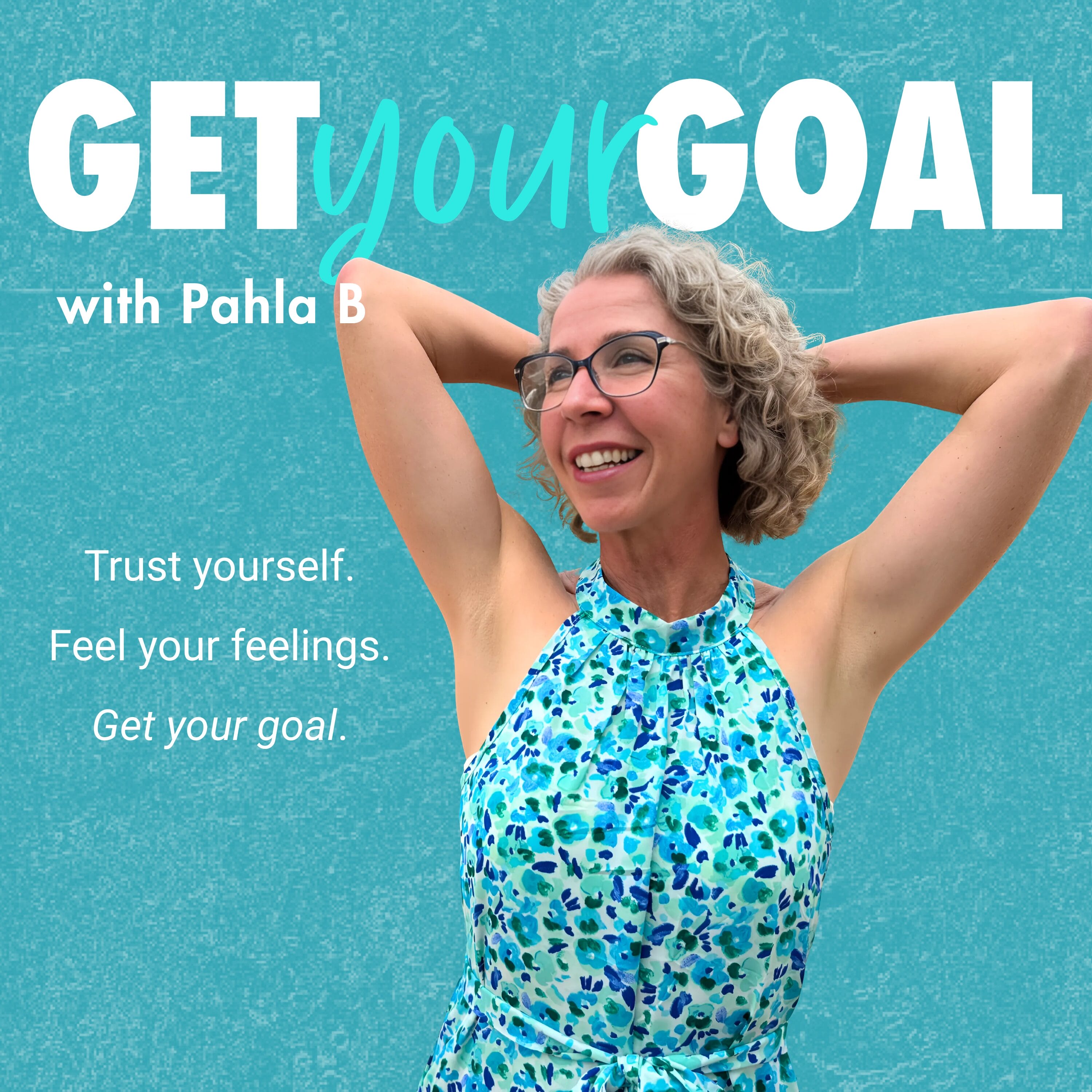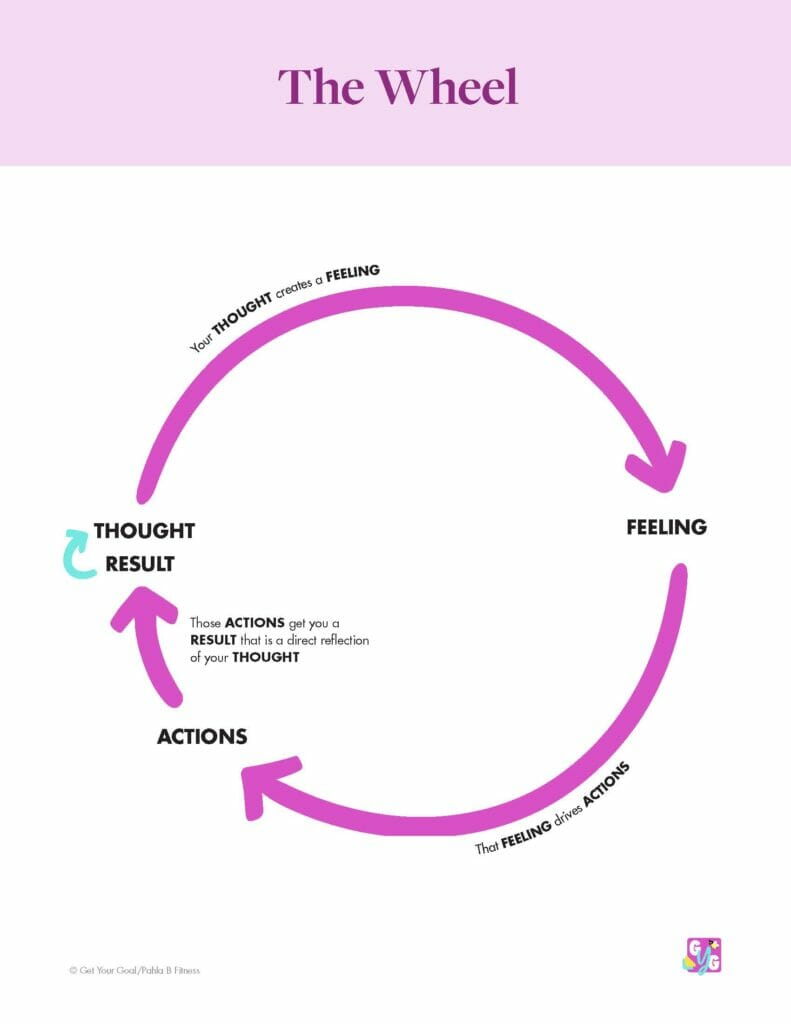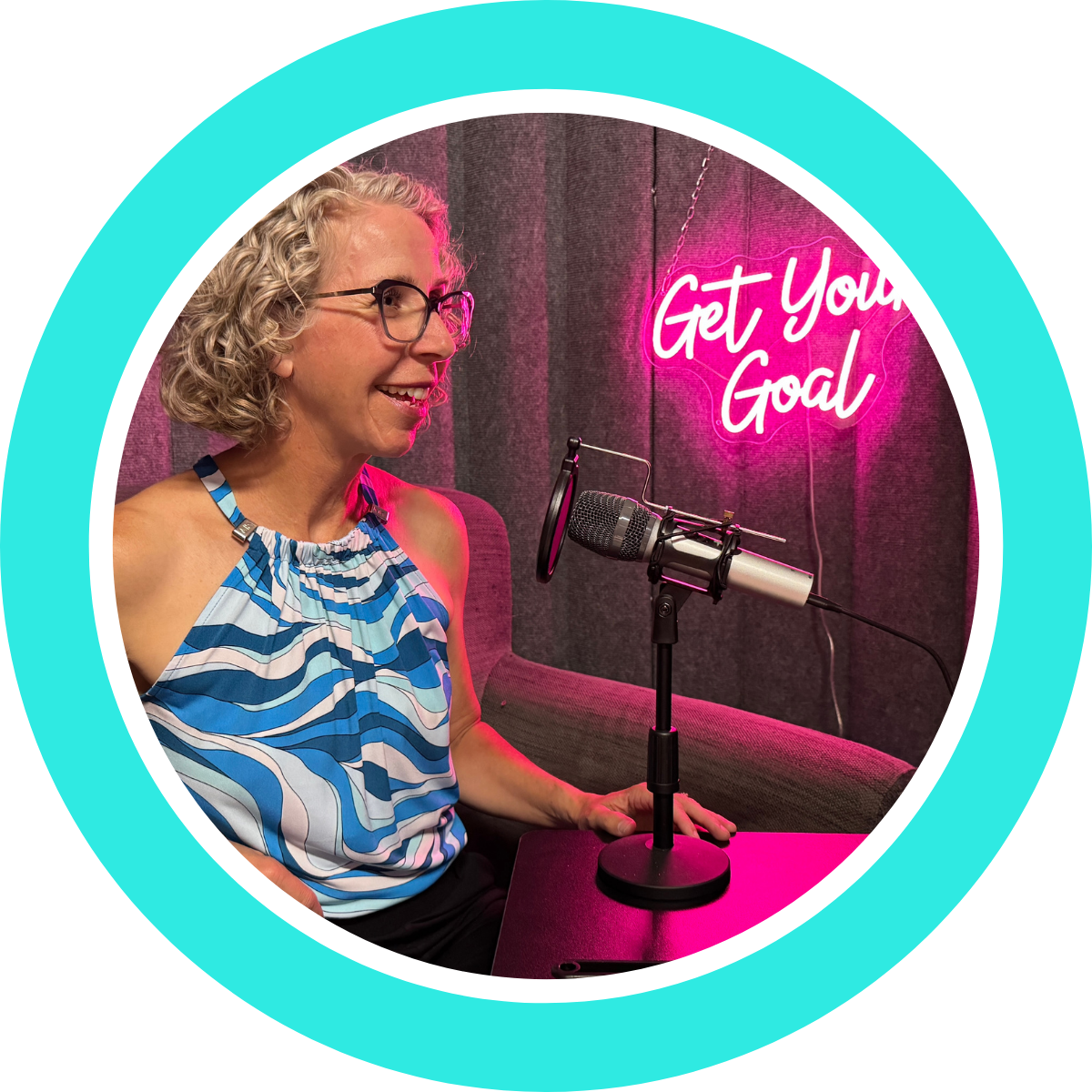Hey, GOALfriend. Welcome to this bonus episode of the Get Your Goal podcast, where we are talking about The Wheel. You guys, today's episode is short, sweet. It's to the point and it is concept only with zero application, which is very unusual here on the podcast. But the reason that I'm doing this for you today is – actually, there's a couple of reasons. Number one is because I think that, well, no, I know that this concept is truly foundational for everything else we talk about, and that's why I'm offering you this as a concept only so that you can take it in as its own piece of information and then literally apply it to every other podcast episode ever.
We talk about it in every other episode. Now, the reason I'm offering you this one in particular as its own little chunk of a concept is because I've created for you a visual that goes along with the verbal, and you can find it on my website at getyourgoal.com/podcast/the-wheel. There will also be a link in the show notes or the description for you to go directly to the website and get this visual, but I wanted to offer this to you so that you can see and hear and understand this concept as a concept so that you can apply it honestly everywhere in your life.
So let's dig in. First of all, let me explain to you why I'm calling this concept The Wheel. It's because I wanna make it really, really clear from the title alone that this is not something that I invented. This concept truly is simply biology. It's the way your brain works, it's the way your brain has always worked. It's the way your brain, as far as I know, will always work. This is simply the way things are. So I wanted to give it a really obvious name that clearly I did not invent myself. I did not invent the wheel. It's been around forever and it's so foundational and formational for you to be able to get everywhere you want to go. And also, interestingly, the wheel being a circle is part of the visual of this concept.
Here's what happens. Anytime anything ever happens in the world, ever, your brain has a thought about a thing, about anything. That thought is a spark of electricity in your brain that sparks a cascade of hormones in your bloodstream, which we call a feeling.
We call it a feeling because you are feeling a physical sensation in your body, a feeling, an emotion. We give them different names, happiness, sadness, anger, fright, all kinds of things. We give them names so that we can identify the collection of physical sensations in our body. Those physical sensations in your body are designed to drive actions. The actions that you do from the feeling in your body are wide and varied. One thought creates one feeling, but that one feeling drives numerous actions. Those actions are how we get a result in our life. And interestingly, that result that you create for yourself through your actions is a direct reflection of the original thought you had. It equals the thought.
Let me give you an example of how this might show up in your life. Let's say that you're on a weight loss journey and you have the thought, I'll never be able to lose weight. That thought creates a feeling for me personally. That thought creates a feeling of defeat. For you personally, it might be some other feeling. Don't get caught in the weeds on this. It doesn't matter what the feeling itself is. It creates a feeling for you. For the purposes of our example, that feeling of defeat would drive for me the actions of eating slightly off target, kind of depending on the day. It might be like way under because of the thought, “I'll never be able to lose weight.” I might try to not eat very much food, or if I'm feeling a particular kind of defeat, I might way overeat. I might drink off target for me personally, uh, when in doubt I'm always gonna under drink my water. Generally speaking, that would be more problematic. It would also possibly drive the action of either going to bed a little bit too late or possibly going to bed early.
But in any event, going to bed off target, being off of my sleeping schedule that I have set for myself in order to lose weight, it would also possibly drive the action of exercising off target, either not exercising at all from that feeling of defeat while I'm never gonna lose weight anyways, or over exercising from that urgency of, oh, I'm never gonna lose weight, but, but maybe if I undereat and overexercise, I can. I would also very likely have the action, or rather in this case, inaction of not journaling, not trying to find my thoughts and see whether or not they're helpful. Because of that feeling of defeat, that feeling of defeat, which was created from the thought, I'll never be able to lose weight, drove several actions that were all off target of the protocol that I have for losing weight, which means the result that I would create for myself, a direct reflection of my original thought is that I wouldn't lose weight, my friends.
The thing that you can take away from this concept is that the results you are currently creating in your life come directly from thoughts you are having. Your thoughts – via the conduit of your feelings and your actions – create your results. You guys, I know I have not applied this in any manner at all, and it's really difficult for me, interestingly, to simply leave you with this concept, but here it is, understand it, take it in, go get the visual, and you'll be able to apply it in every other episode. Thank you so much for listening. I'll talk to you again soon.






